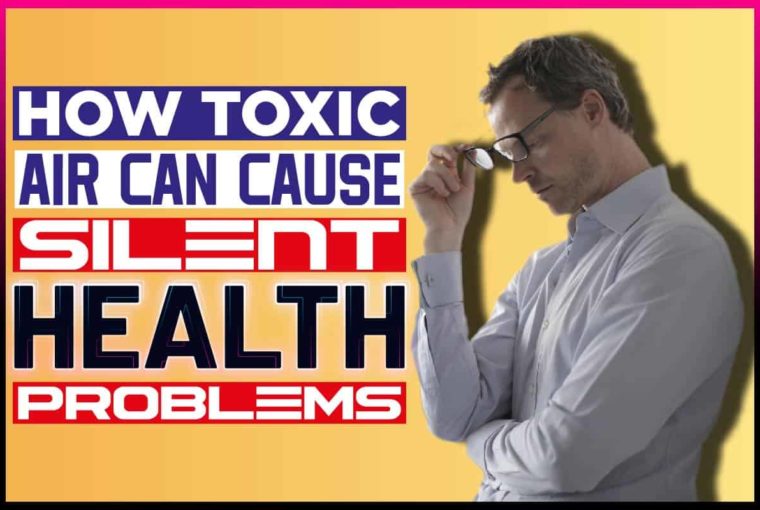Toxic air, or air pollution, is capable of damaging every organ and cell in the body. According to a comprehensive new global review, air pollutants can lead to diabetes, dementia, bladder cancer, lung, and heart disease and can affect fertility and children’s growth. Air pollution can cause harm chronically and acutely, but you won’t notice these effects for many years.
How Air Pollution Affects The Body
Classified as a “silent killer” by WHO, inhaling toxic air can lead to the following health issues.
Lungs and Heart:
Small air particles can penetrate the lungs and carry it through the body, which increases your risk for laryngitis, asthma, heart disease, and lung cancer.
Brain and Mind:
Immune cells attach pollution particles in the brain, which releases acids and enzymes. These proteins can spread throughout the rest of the body. You can increase your risk of stroke, dementia, eye problems, and premature aging.
Filtering Organs:
The liver, kidneys, and bladder cannot filter out toxic air effectively, which can irritate these organs and cause future problems. You could develop kidney and bladder cancer, diabetes, Crohn’s disease, and fatty liver disease.
Reproductive Organs/Children:
Toxic air affects your fertility and increases the risk of miscarriages and birthing a child with health complications or low birth weight.
Doctors are starting to speak up about this issue, as most people have no idea that air pollution affects the body to this degree. While the best way to reduce exposure is by controlling it at the source, some people aren’t so lucky as they still live or have lived in areas with poor conditions.
For example, 9/11 volunteers in the Exposure Zone often developed chronic health conditions from inhaling the toxic fumes and dust in the area. First responders, residents, workers, and students may be eligible for compensation if they were present or diagnosed with an illness.
How To Address The Common Causes Of Indoor Air Pollution
If you have one of the above health problems and you live in a heavily populated area, you can still address the common causes of indoor air pollution with an air purifier. Homes can install a purifier in their air exchange units, while apartment or condo owners can use a portable purifier.
You should also ensure that you stop using or remove the following products in your home.
Biological Pollutants
Not everything declared natural is good for our lungs. Environmental pollutants such as plant pollen, mildew, mold, mites, dander, cockroaches, parasites, fungi, and certain bacteria can trigger allergies and infections that may lead to lung disease, asthma, and the flu.
Tobacco and Marijuana Smoke
Smoke, in general, shouldn’t be inhaled, but marijuana is the least of your worries. First or secondhand smoke contains over 40 cancer-causing agents that can burn your eyes, respiratory tract, and eyes. Prolonged irritation could cause bronchitis, asthma, and decreased lung function.
Household Products
Cleaning products contain multiple air pollutants that will eventually cause harm. Degreasing or disinfecting products, glues, polishes, wood preservatives, and air fresheners could have harsh chemicals that cause dizziness, headaches, and chronic health conditions like cancer.
Radon, Formaldehyde and Carbon Monoxide
Any house could have radon trapped inside, but tobacco smoke could increase current levels. Formaldehyde and carbon monoxide are the production of heating systems, gas stoves, and grills. These gases can cause lung issues, fatigue, nausea, and death from suffocation.
Pesticides
Disinfectants and insecticides are sometimes used indoors, but you could develop severe allergies to the product or become nauseous when misused. When used in a ventilated area, you can reduce the long-term damages to the liver or lower your risk of cancer.
Determine your indoor air quality by examining your symptoms again after you remove the above air pollutants. If you feel better, you may have solved your problems. If not, you may have a pre-existing health condition, live in a poorly ventilated home, or require exercise.




